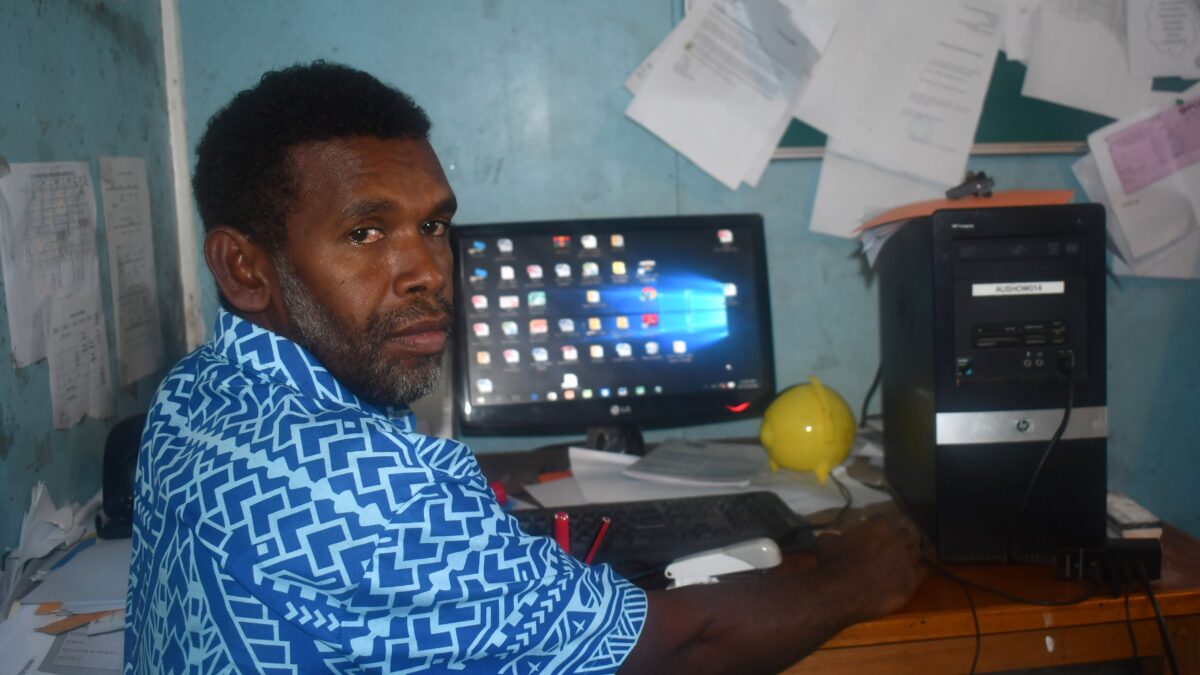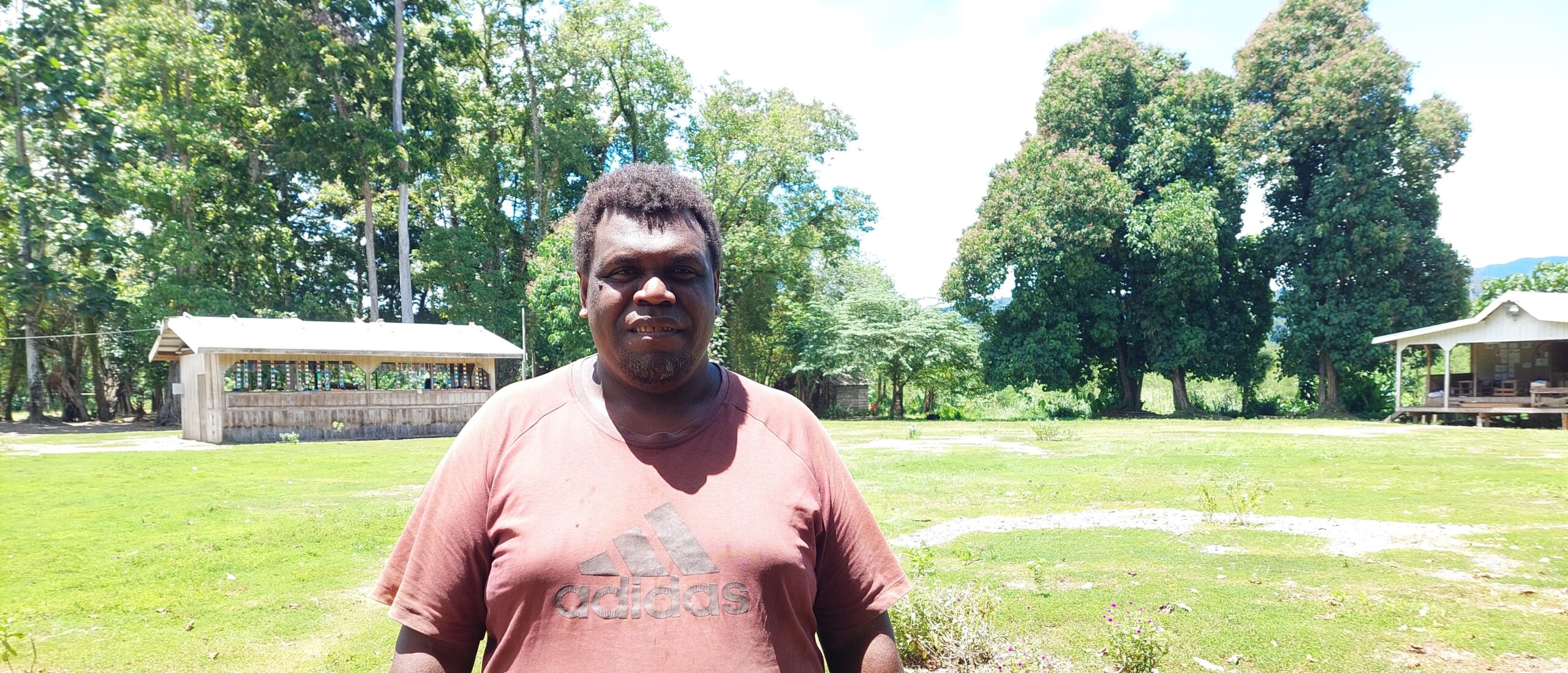

Principal of Rate Community High School, Mr Philemon using a Desktop Computer in his staff office
CBSP work benefits two Tina Schools with water supply and electricity access
HONIARA – Two schools within the Mbahomea region of the Tina River Hydropower Development Project (TRHDP) catchment are now able to access water and electricity, thanks to the Community Benefits Sharing Project (CBSP).
Rate Community High School and Perch Christian Academy (Extension) in Tina Village are the first two schools in catchment communities to see early benefits from the Project; well before the infrastructure has been built and the hydropower is flowing. These benefits come under Component 2 of the CBSP relating to improving investment in community infrastructure. The delivery of this CBSP component will not only benefits for schools, but the project will also invest in connecting the Honiara City power grid to communities and install good, clean water supply and sanitation facilities in targeted locations throughout the project region.

Education Officer of Perch Christian Academy (Ext) at Tina Village, Mr Osbourne Lahi.
Lyndon Philemon, Principal of Rate Community High School said, “These basic amenities are essential for the smooth functioning of our school, and their availability will significantly impact the quality of education that our students receive. With access to water and electricity, schools can provide a safe and healthy learning environment, facilitate the use of modern technology, and offer a range of extracurricular activities that enhance students’ learning outcomes,” he added.
With access to the new water supply and electricity at the school, Mr Philemon said the facility will now be able to operate normally, just like every other school in the country. “We will no longer need dismiss classes early because there is access to running water at the school and now teachers can access water from standpipes beside their homes, instead of having to walk for nearly 1 kilometre for fetch water from the Tina River.”

Students of Perch Christian Academy (ext) at Tina Village drinking from CBSP water supply standpipe at the school.
“And with electricity on site here, teachers can now prepare schoolwork from the comfort of the school office using computers, printers, and other electronic devices instead of traveling to Honiara City. This means more quality time available to actually teach the kids. With access to electricity, contractors who are doing renovation and building works at the school are now able to use power tools, which now makes their jobs quicker and easier,” Mr Philemon added.
Education Officer Mr Osbourne Lahi of Perch Christian School (Extension) at Tina Village that teaches around 130 kids, said it was exciting and a relief for the school to now have access to both power and water; two of the most important services required for a school to operate.
“In terms of the electricity access, it has helped us a lot in the efficiency and delivery of our lesson plans by preparing activities at the school. It has also helped our teachers to speed up their duties and perform their work to the required education standard. The school is now also providing photocopying and printing services to the community of Tina with some fees to help maintain their photocopy & printing machines. This small service is now helping a lot of students and churches in the community here.”

These students are now drinking safe water from the school standpipe under the CBSP water supply program
Mr Lahi added, “the CBSP water supply is also a blessing for the school as it has allowed it to operate without constant disruption of classes. Water is essential for the running of a school and with the availability of the water supply at the school, we are currently constructing a toilet block for the staff and students.”
He also thanked the Tina Hydropower Project through CBSP for the much-needed services and he hopes that the availability of these resources continues to positively impact schools in the catchment area, and that the students can continue to thrive and achieve their full potential.
Mr Philemon, the Principal of Rate Community High School also said, “It is heartening to see that the CBSP and the Tina River Hydropower Project working towards improving the quality of life for people in the catchment area, and I hope that such positive developments continue in the future.”
Work on phase 2 of the CBSP program will continue in the final quarter of 2023, with the sub-component aiming to provide further water supplies to eligible villages and WASH facilities to selected public infrastructure (e.g., schools, health centres) in these areas. This is in accordance with the Rural Water Supply, Sanitation and Hygiene (R-WASH) Policy of the Ministry of Health & Medical Services (MHMS) and in collaboration with the Water Division of the Ministry of Mines, Energy and Rural Electrification (MMERE). —ENDS//
-TRHDP Press